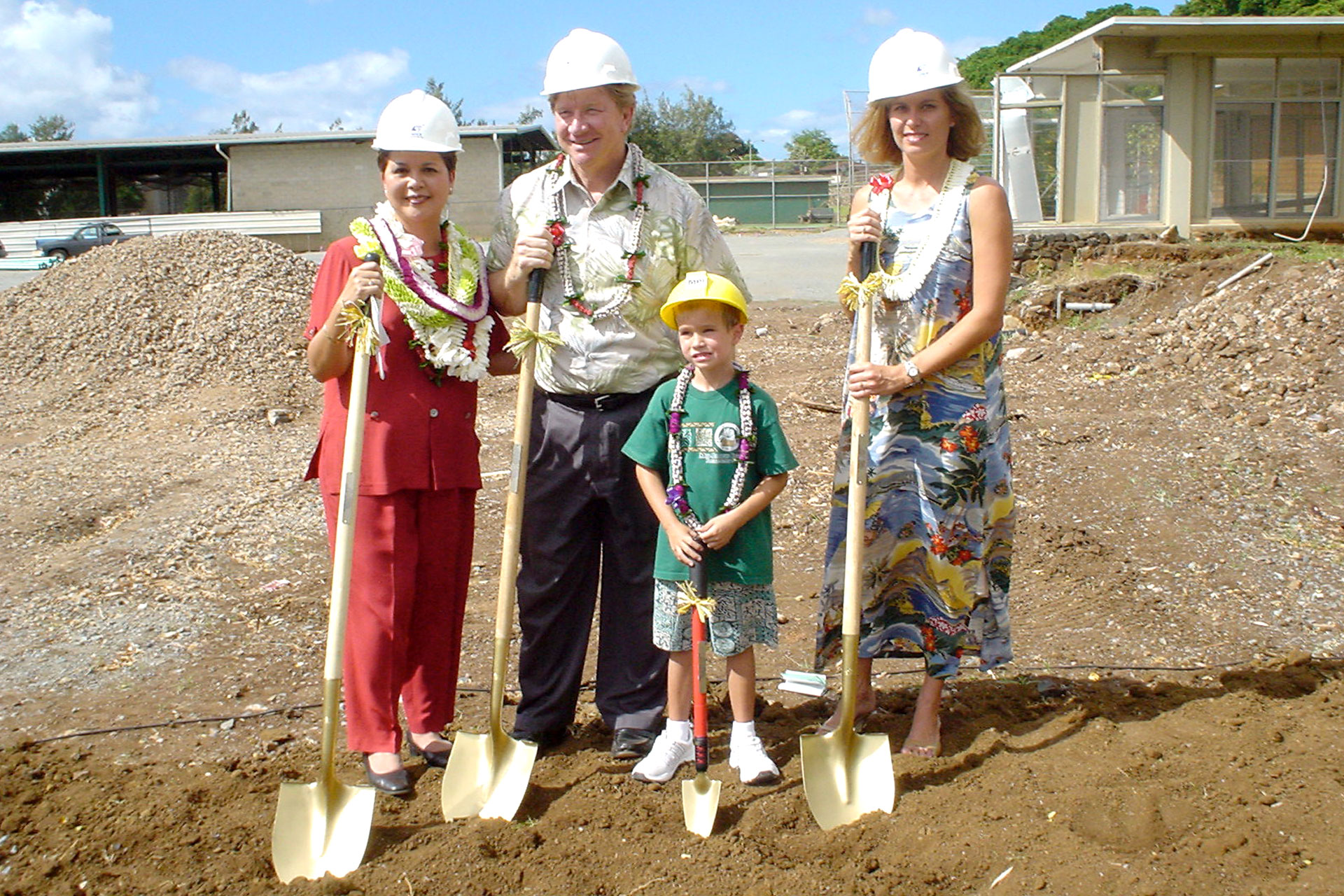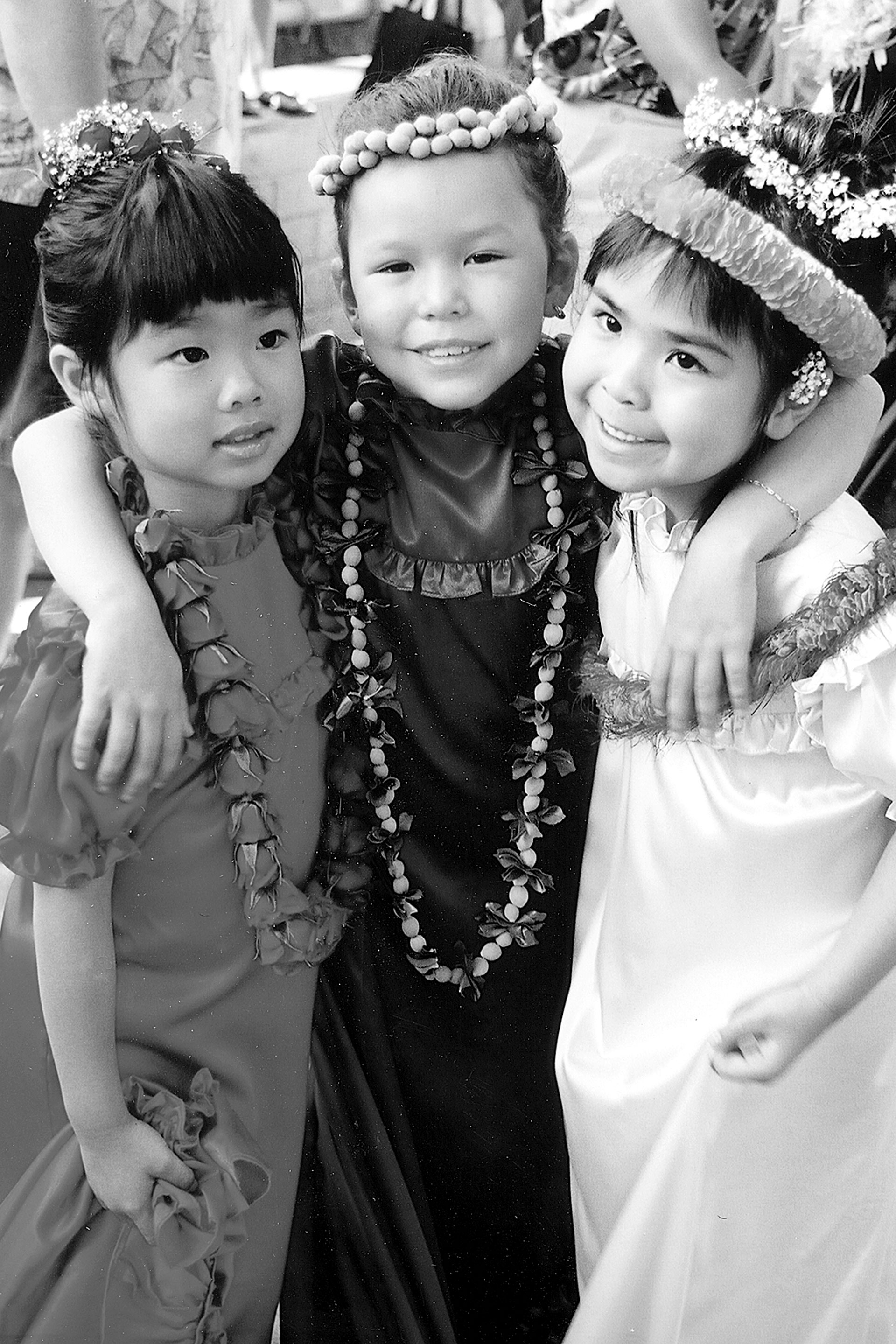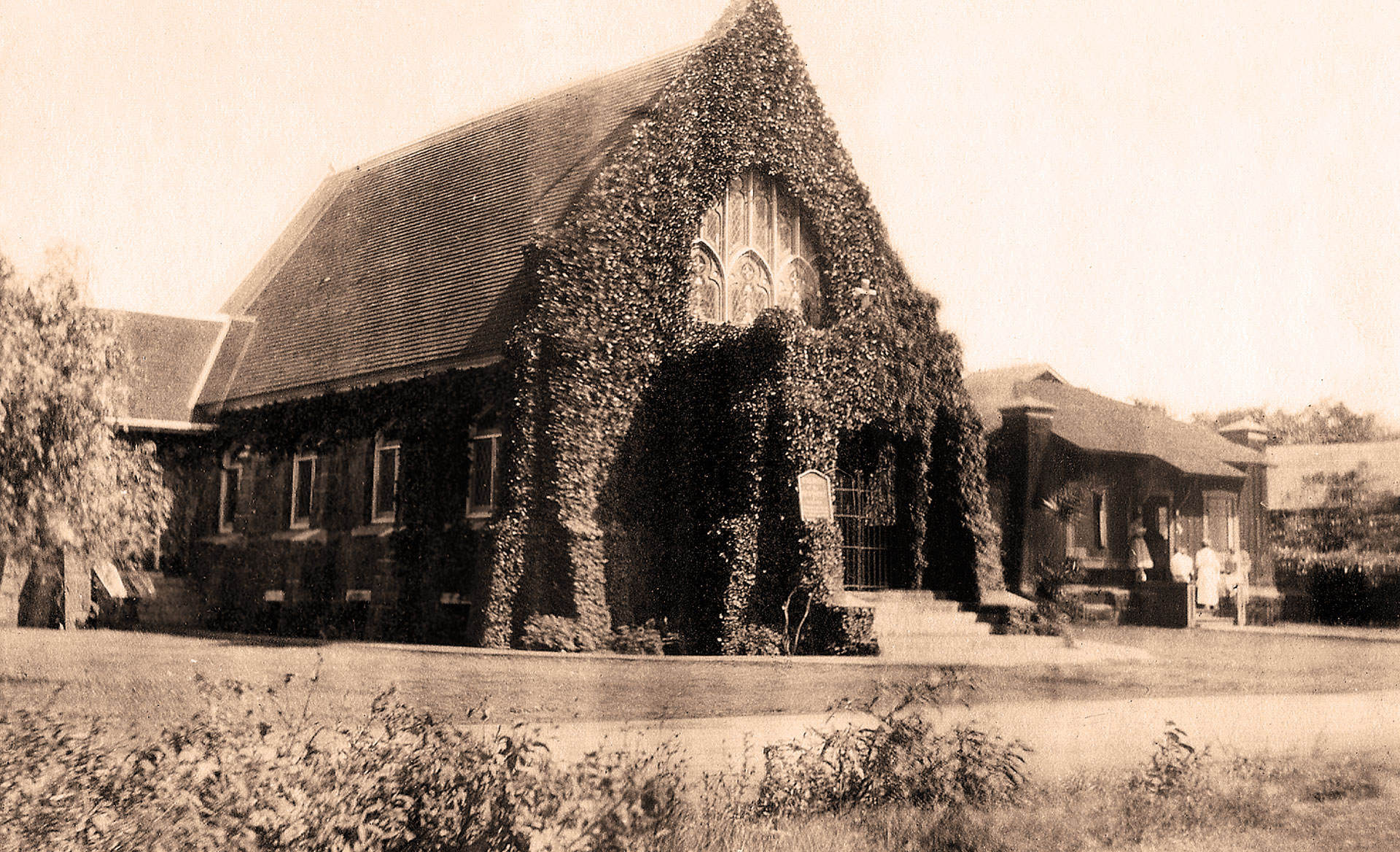Front row: Leo H. ’34, Coco S. ’37, Linnea K. ’37, and Anna H. ’38 Second row: Nainoa G. ’35, Olivia W. ’32, Luca H. ’34, Dr. Edna Hussey, Gyasi K. ’33, Ismail A. ’35, and Ryotaro U. ’32.
This year marks the 20th anniversary of Mid-Pacific’s Elementary School, a milestone in its journey of growth, innovation, and unwavering community support. The story of the Mid-Pacific Elementary School is not just one of education, but of transformation rooted in the humble beginnings of Epiphany School, a small institution that opened its doors in the 1930s.

Dr. Edna Hussey, Joe Rice (then President of Mid-Pacific), Vittorio Antunes, and Kimberly Soares at the Elementary School groundbreaking ceremony on the Mid-Pacific campus.
From Epiphany to Mid-Pacific: A Journey of Resilience
Epiphany School, founded as a kindergarten in the 1930s, expanded to sixth grade over the years. However, by the late 1990s, the rise of middle schools led to declining enrollment for sixth grade, posing financial challenges. Under the leadership of Dr. Edna Hussey, the school’s board and community were determined to find a solution to ensure the future of their students.
A pivotal moment occurred in 2002 at an Hawai‘i Association of Independent Schools (HAIS) meeting for heads of schools in Hawai‘i, when Dr. Hussey had planned to talk to Joe Rice, then president of Mid-Pacific. This conversation blossomed into a partnership that would redefine the future of Epiphany School. In 2004-2005, bringing with them their strong community support, rising sixth graders transitioned to Mid-Pacific’s Middle School, and kindergarten through fifth grade students joined Mid-Pacific—marking the birth of Mid-Pacific Elementary School. The creation of the Preschool followed a year later.
Embracing Innovation in Curriculum
One of the defining features of Mid-Pacific Preschool and Elementary is its adoption of the Reggio Emilia approach to education. Inspired by a visit to Reggio Emilia, Italy, where two teachers observed the emergent curriculum in action, Mid-Pacific incorporated these principles into its inquiry-based learning model. The underlying principle of this approach is the image of the child as highly capable to take the lead in their own learning journey, fostering curiosity, critical thinking, and deeper understanding.

“At Mid-Pacific Elementary, our social studies and science curriculum grows from the questions and interests of our children,” says Dr. Hussey. “The students’ inquiries guide the lessons, creating a dynamic learning environment where each child feels empowered.”
Over the past two decades, the inquiry-based model has evolved with teachers gaining confidence in its effectiveness. While aligned with state standards, the curriculum is distinct in its emphasis on student-driven exploration and problem-solving, preparing students to be world-ready learners.

Three students who inspired the Children First logo, a motto still used today at Mid-Pacific’s preschool and elementary school.
Building Character and Community
Beyond academics and from the very beginning, character education has been at the heart of Mid-Pacific Elementary–instilling values such as respect, empathy, and responsibility toward oneself, the community, and the world. The school’s community events, like Kupuna Day (formerly Grandparents Day) and Spooktivity, bring families together, strengthening the bonds between students, parents, and teachers. Even during the pandemic, the sense of community remained intact, with virtual events allowing participation from across the globe.
“Our community is our greatest strength,” says Dr. Hussey. “The support from parents, staff, and alumni makes every celebration meaningful and reinforces the feeling of belonging for our students.”
Looking Ahead: Aspirations for the Next 20 Years
As the school commemorates 20 years of excellence, Dr. Hussey reflects on the future of Mid-Pacific Elementary and the students who will one day lead our world. One of the key aspirations is to deepen the school’s commitment to inquiry-based learning and character education. This vision includes strengthening support for neuro-diverse learners through specialized programs and professional development for teachers, made possible by partnerships with organizations like Kupu Hou Academy and the North American Reggio Emilia Alliance.
The upcoming “Mosaic” exhibit in 2027, which will showcase the Reggio Emilia approach, promises to attract international attention and further solidify Mid-Pacific’s reputation as a leader in innovative education.
Dr. Hussey sums it up best: “Our journey is far from over. With the support of our community, we can ensure that Mid-Pacific Elementary continues to thrive for generations to come.”

In 1910, the Church of the Epiphany, was made of hand-hewn lava rock hauled piece by piece by parishioners. Its design was an adaptation of an 18th century English country chapel in the Gothic tradition. The kindergarten opened in 1938 with nine kindergarten students then expanded to grade 6 in 1945 with a total enrollment of 100 students.

